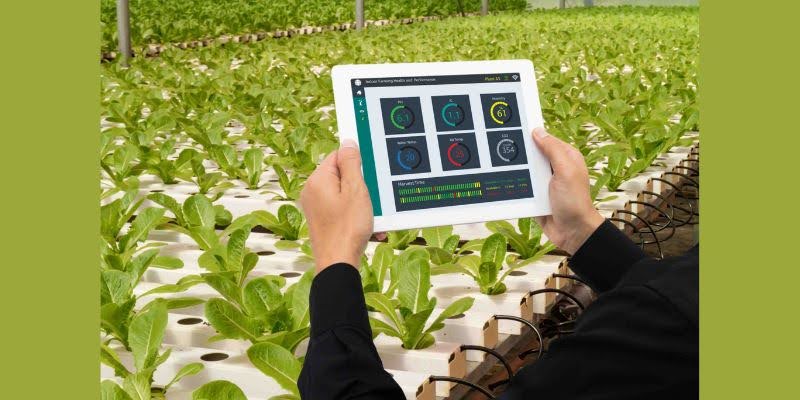
In today's rapidly evolving agricultural landscape, staying competitive requires efficiency, accuracy, and foresight. Farm management software has emerged as an essential tool, bridging the gap between traditional farming practices and modern technological solutions.
This comprehensive software integrates every aspect of farm operations, from fieldwork and crop management to financial planning and analysis, allowing farmers to optimize productivity, reduce costs, and make informed decisions.
Transforming Field Operations
One of the most significant advantages of farm management software is its ability to streamline field operations. By digitizing data collection, farmers can quickly capture crucial information such as planting dates, soil conditions, crop health, and weather patterns.
Automated sensors and IoT devices can monitor field conditions in real-time, providing instant alerts on irrigation needs, nutrient deficiencies, or pest invasions. This proactive approach not only saves time but significantly enhances yield quality.
For instance, precision agriculture technologies integrated with farm management software allow farmers to apply fertilizers and pesticides with pinpoint accuracy. This minimizes waste, reduces input costs, and ensures sustainability.
Additionally, GPS-based mapping capabilities enable optimized field layouts, accurate seed planting, and efficient harvesting, leading to reduced fuel consumption and machinery wear.
Enhanced Decision-Making
The value of data cannot be overstated in contemporary agriculture. Farm management software centralizes data collection and provides robust analytical tools, translating raw data into actionable insights. By aggregating historical yield data, weather forecasts, and real-time market trends, the software enables farmers to make proactive and informed decisions.
Predictive analytics within these platforms can forecast yields and recommend optimal planting strategies. Farmers can simulate different scenarios, helping them identify the most profitable crops and planting schedules. This foresight ensures resources are allocated efficiently and sustainably, improving both productivity and profitability.
Efficient Farm Inventory Management
Effective inventory management is critical in agriculture, directly impacting profitability and operational efficiency. Farm inventory management functionalities within farm management software streamline tracking of seeds, fertilizers, pesticides, and equipment.
By maintaining accurate records of stock levels, expiration dates, and reorder thresholds, farmers prevent costly shortages and wasteful surplus.
Farm management software also integrates seamlessly with procurement systems, automating reorder processes based on real-time inventory data. This level of automation ensures that critical supplies are always available when needed, minimizing downtime and reducing operational disruptions.
Moreover, integrated inventory systems enable comprehensive traceability, which is essential for compliance with agricultural regulations and standards.
Comprehensive Financial Management
Farm management software does not only cater to agricultural activities but also addresses the financial complexities of modern farming operations. Financial modules within the software simplify budgeting, forecasting, and expense tracking. By consolidating field data and inventory usage with financial transactions, the software provides farmers with accurate, real-time visibility into their financial performance.
Farmers can easily track expenses by crop, field, or season, allowing detailed cost analysis and profitability assessments. Automated financial reporting helps in identifying cost-saving opportunities and improving cash flow management.
Additionally, the software facilitates compliance with regulatory requirements by generating accurate financial statements and tax reports, significantly reducing administrative burdens.
Enhanced Sustainability and Compliance
Sustainability has become a critical component of modern agriculture, driven by both regulatory demands and consumer expectations. Farm management software supports sustainable practices by optimizing resource usage and minimizing environmental impact. Precision agriculture components within these platforms help farmers precisely manage water, nutrients, and chemicals, reducing runoff and promoting soil health.
Furthermore, comprehensive documentation capabilities enable farmers to easily demonstrate compliance with sustainability standards and certifications, such as organic or fair-trade labeling. Digital records facilitate audits and inspections, significantly reducing paperwork and administrative tasks associated with regulatory compliance.
Improved Communication and Collaboration
Farm management software fosters improved communication and collaboration among farm workers, agronomists, financial advisors, and other stakeholders. Cloud-based platforms enable real-time data sharing, ensuring all team members have access to up-to-date information regardless of their location.
This centralized communication enhances coordination across various farm operations, from planting schedules and harvesting timelines to financial planning and regulatory compliance. With everyone working from the same data set, misunderstandings and errors are minimized, leading to more efficient and harmonious farm management.
Increased Profitability and Long-term Success
Ultimately, the integration of farm management software translates to increased profitability and sustained success for farms. By optimizing every facet of farm operations—from inventory management to financial planning—the software reduces costs, enhances productivity, and maximizes yields. Data-driven insights allow farmers to anticipate market trends and consumer demands, positioning them strategically for long-term growth.
Farm management software provides farmers with a competitive edge, equipping them to respond swiftly to challenges and opportunities alike. As agriculture continues to evolve, the adoption of comprehensive farm management solutions will become not just advantageous but essential.
Conclusion
From field to finance, farm management software offers extensive benefits that revolutionize traditional agricultural practices. By incorporating Farm Inventory Management, financial analysis, predictive analytics, and precision agriculture, these digital solutions empower farmers to improve efficiency, sustainability, and profitability.
As agricultural technology continues to advance, farmers who leverage these powerful tools will be well-positioned to thrive in an increasingly competitive and demanding market.






